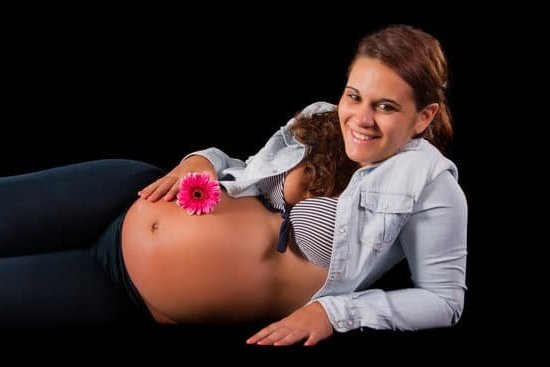Can a pregnancy test be positive at 2 weeks? Early detection of pregnancy is a common concern for many women who suspect they may be pregnant.
Understanding the intricacies of the menstrual cycle, ovulation, and how pregnancy tests work can provide insight into when a pregnancy test may yield accurate results. In this article, we will explore the possibility of a positive pregnancy test at 2 weeks after conception, factors that can influence test accuracy, and early signs and symptoms of pregnancy to watch out for.
The ability of a pregnancy test to detect hCG (human chorionic gonadotropin) – the hormone produced during pregnancy – can vary depending on how soon implantation occurs after conception. As such, getting an accurate result on a home pregnancy test at 2 weeks may not always be possible due to the low levels of hCG in the body during this early stage.
However, there are certain factors that can affect the accuracy of a pregnancy test at this time, which we will delve into further in this article.
It is crucial for individuals seeking confirmation of pregnancy to understand the differences between blood and urine tests, as well as knowing when it is most appropriate to take a home pregnancy test. By familiarizing oneself with these key details and symptoms associated with early pregnancy, one can navigate through the process with greater awareness and possibly obtain more reliable results from a pregnancy test conducted at 2 weeks after potential conception.
Understanding the Menstrual Cycle and Ovulation
The menstrual cycle is a crucial aspect of a woman’s reproductive system, playing a significant role in determining fertility and the likelihood of pregnancy. On average, a menstrual cycle typically lasts around 28 days, although it can vary from woman to woman. The cycle is divided into two main phases: the follicular phase and the luteal phase.
During the follicular phase, which begins on the first day of menstruation, the body prepares for ovulation by releasing hormones that stimulate the growth of follicles in the ovaries. These follicles contain eggs, but only one will mature fully in preparation for release during ovulation. Ovulation usually occurs around day 14 of a 28-day cycle when the mature egg is released from the ovary and is available for fertilization.
Understanding ovulation is key when considering whether a pregnancy test can be positive at 2 weeks after conception. Conception happens when a sperm successfully fertilizes the released egg, usually within 24 hours of ovulation but up to 48 hours later.
It takes time for the fertilized egg to travel down the fallopian tube and implant itself into the uterine lining, where it starts releasing pregnancy hormones that are detected by pregnancy tests. This process typically takes about 6-12 days after conception, meaning that at around two weeks post-conception, pregnancy tests
How Pregnancy Tests Work
Understanding Pregnancy Testing
Pregnancy tests work by detecting the presence of a hormone called human chorionic gonadotropin (hCG) in a woman’s body. This hormone is produced by the developing placenta after a fertilized egg attaches to the uterine lining. Most over-the-counter pregnancy tests are designed to detect hCG levels in urine, while blood tests can also measure hCG levels in the bloodstream.
Timing of Taking a Pregnancy Test
It is important to understand that pregnancy tests are most accurate when taken after a missed period, as this allows for sufficient time for hCG levels to rise and be detectable. However, some sensitive pregnancy tests claim to be able to detect hCG levels as early as 2 weeks after conception. While it is possible for some women to have enough hCG at this point for a positive result, it might not be the case for everyone.
Potential Factors Affecting Early Pregnancy Testing Results
Several factors can influence the reliability of a pregnancy test at 2 weeks after conception. These may include the sensitivity of the test being used, variations in individual hCG production rates, or even issues with timing and accuracy in tracking ovulation dates. Therefore, while it is theoretically possible for a pregnancy test to be positive at 2 weeks post-conception, it is essential to follow up with healthcare providers for confirmation and guidance.
Can a Pregnancy Test Be Positive at 2 Weeks After Conception?
When it comes to early pregnancy testing, many women wonder, “Can a pregnancy test be positive at 2 weeks after conception?” It’s important to understand the timing and accuracy of these tests in order to get reliable results. Conception typically occurs around two weeks after the start of a woman’s last menstrual period, which is why this timeframe is often used as a reference point for testing.
At 2 weeks after conception, some pregnancy tests may be able to detect the presence of hCG (human chorionic gonadotropin) in the urine. However, it’s crucial to note that not all tests are sensitive enough to pick up on low levels of hCG this early in pregnancy. This means that while some women may receive a positive result at 2 weeks, others may need to wait longer for accurate results.
Factors that can affect the accuracy of a pregnancy test at 2 weeks include the sensitivity of the test itself, the concentration of hCG in the urine or blood, and how well the test is performed. To increase the chances of obtaining an accurate result at such an early stage, it is recommended to use a highly sensitive test and follow all instructions carefully.
If there is any doubt about the results, it’s best to consult with a healthcare provider for further guidance and confirmation.
Factors That Affect Pregnancy Test Accuracy
When it comes to determining whether a pregnancy test can be positive at 2 weeks, accuracy is a crucial factor to consider. The timing of when you take a pregnancy test can significantly impact its reliability.
At 2 weeks after conception, the levels of human chorionic gonadotropin (hCG) hormone in your body might still be too low for a home pregnancy test to detect. Typically, hCG levels double every 48 to 72 hours during the early weeks of pregnancy, so waiting a few more days before testing could provide more accurate results.
Apart from timing, certain factors can also affect the accuracy of a pregnancy test. One key element is the sensitivity of the test itself. Some tests on the market are designed to detect lower levels of hCG than others, so choosing a highly sensitive test might increase your chances of getting a positive result earlier on.
Additionally, following the instructions provided with the test kit is essential to ensure accurate results. Factors such as improper storage of the test, not using first-morning urine, or misreading the results can all lead to inaccurate outcomes.
Another factor that can influence the accuracy of a pregnancy test is medications or medical conditions that interfere with hCG production in the body. Certain fertility treatments containing hCG or underlying health issues like ovarian cysts or hormonal imbalances can potentially affect hCG levels and consequently impact the results of a pregnancy test.
If you are concerned about these factors and unsure about the reliability of your home pregnancy test, consulting with a healthcare provider for further testing and guidance is recommended.
| Key Factor | Impact on Pregnancy Test Accuracy |
|---|---|
| Sensitivity of Test | Higher sensitivity increases chances of early detection. |
| Timing | HCG levels may still be too low at 2 weeks for accurate detection. |
| Medications/Medical Conditions | Certain drugs or health issues can interfere with hCG production. |
Differences Between Blood and Urine Pregnancy Tests
When it comes to early pregnancy testing, there are two main types of tests that are commonly used: blood and urine pregnancy tests. Both tests detect the presence of human chorionic gonadotropin (hCG), a hormone produced by the placenta shortly after implantation. However, there are some key differences between the two types of tests that can impact their accuracy and reliability.
– Sensitivity: Blood tests for hCG typically have a lower detection threshold compared to urine tests. This means that blood tests can detect smaller amounts of hCG earlier in pregnancy, making them more sensitive in detecting early pregnancies.
– Timing: While most home pregnancy urine tests recommend waiting until the first day of a missed period to test for accuracy, blood tests done at a healthcare provider’s office can often detect hCG levels as early as 7-12 days after conception.
– Accuracy: Overall, blood pregnancy tests are considered more accurate than urine tests, especially in very early pregnancies. Blood tests can provide quantifiable hCG levels, which can help monitor progression or potential complications in early pregnancy.
Therefore, if you find yourself wondering “can a pregnancy test be positive at 2 weeks,” it is important to consider the type of test being used. A blood test at a healthcare provider’s office may be able to detect hCG levels indicating pregnancy as early as 2 weeks after conception.
Early Signs and Symptoms of Pregnancy
Many women may start experiencing early signs and symptoms of pregnancy as early as 2 weeks after conception. These signs can vary from woman to woman, but some common early indicators include missed periods, fatigue, breast tenderness, nausea or morning sickness, and frequent urination. However, it is essential to note that these symptoms can also be associated with other health conditions, so it is crucial to take a pregnancy test for confirmation.
Implantation Bleeding
One of the earliest signs of pregnancy that can occur at around 2 weeks after conception is implantation bleeding. This light spotting may occur when the fertilized egg attaches itself to the uterine lining. It is often mistaken for a light period but usually lasts for a shorter duration and is lighter in flow. If you experience implantation bleeding along with other symptoms such as fatigue and breast tenderness, consider taking a pregnancy test to confirm.
Changes in Sense of Smell
Another subtle sign of early pregnancy that can manifest around 2 weeks post-conception is an increased sensitivity to smells. Certain odors may suddenly become unpleasant or overwhelming, which
Tips for Taking a Pregnancy Test at 2 Weeks
Taking a pregnancy test at 2 weeks post-conception may yield accurate results for some women, but it is important to understand the factors that can influence the accuracy of the test. Here are some tips to consider when taking a pregnancy test at this early stage:
- Use a sensitive pregnancy test: Some over-the-counter pregnancy tests are more sensitive than others, meaning they can detect lower levels of hCG (human chorionic gonadotropin) in the urine. Look for tests that are labeled as “early detection” or “ultra-sensitive.”
- Follow the instructions carefully: It is crucial to follow the instructions provided with the pregnancy test kit to ensure accurate results. Improper use of the test, such as testing too early or using diluted urine, can lead to false-negative results.
- Test in the morning: The concentration of hCG in urine is typically higher in the morning, so taking a pregnancy test with your first morning urine sample may increase the likelihood of detecting a positive result at 2 weeks post-conception.
It is also essential to remember that even if a pregnancy test is positive at 2 weeks, it is not a definitive confirmation of pregnancy. False-positive results can occur due to certain medications or medical conditions that elevate hCG levels. Therefore, it is recommended to follow up with a healthcare provider for further evaluation and confirmation of pregnancy status.
Conclusion
In conclusion, the question “Can a pregnancy test be positive at 2 weeks?” highlights the importance of understanding the limitations of early pregnancy testing. While some home pregnancy tests claim to detect pregnancy as early as 1-2 weeks after conception, it is essential to consider factors that can affect the accuracy of these tests. Factors such as the sensitivity of the test, timing of implantation, and individual hormone levels can all influence the results of a pregnancy test.
While taking a pregnancy test at 2 weeks may provide some insight into potential pregnancy, it is crucial to confirm these results with a healthcare provider. Healthcare providers can conduct blood tests that measure hCG levels more accurately than home urine tests. Additionally, they can provide guidance on prenatal care, answer any questions or concerns about early signs and symptoms of pregnancy, and ensure that proper steps are taken for a healthy outcome.
Ultimately, confirming pregnancy with a healthcare provider not only provides accurate results but also allows for personalized care throughout the duration of your pregnancy journey. It is important to seek medical advice and support from professionals who can offer comprehensive care and guidance from the very beginning, ensuring the best possible start for you and your baby. Remember, a positive result on a home pregnancy test at 2 weeks should always be followed up with confirmation from a healthcare provider.
Frequently Asked Questions
Can You Get a Positive Pregnancy Test at 2 Weeks?
It is highly unlikely to get a positive pregnancy test at 2 weeks after conception since it may be too early for the body to produce detectable levels of hCG hormone. Most women get accurate results around 4-6 weeks.
What Is the Earliest a Pregnancy Test Will Be Positive?
The earliest a pregnancy test will be positive is usually around 8-10 days after ovulation or fertilization occurs. This is because it takes time for hCG levels to build up in the body to a detectable amount by home pregnancy tests.
Is 2 Weeks Too Soon for a Pregnancy Test?
While some early detection pregnancy tests claim to provide accurate results as early as 6 days before a missed period, waiting until at least 1-2 weeks after conception is ideal for the most reliable result. Testing too soon may lead to false negatives and unnecessary worry.

Welcome to my fertility blog. This is a space where I will be sharing my experiences as I navigate through the world of fertility treatments, as well as provide information and resources about fertility and pregnancy.





